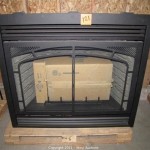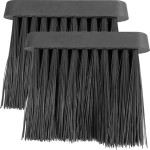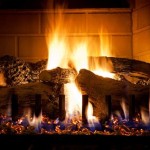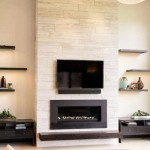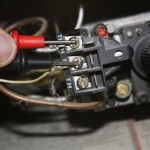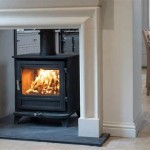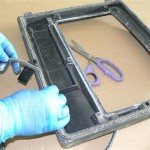Fireplace Fan: A Guide to Efficient Heating and Enjoyment
Fireplaces have long been a source of warmth and ambiance in homes. However, traditional wood-burning fireplaces can be inefficient, with much of the heat escaping up the chimney. To make the most of your fireplace's heat output and create a more comfortable living space, a fireplace fan can be a valuable investment. This article will explore the benefits of fireplace fans, how they work, and essential factors to consider when choosing one.
How Fireplace Fans Work
Fireplace fans are designed to circulate the warm air produced by your fireplace throughout the room. They typically work by drawing in cool air from the room and expelling it as warm air, creating a convection current. There are two main types of fireplace fans:
-
Thermoelectric fans:
These fans are powered by the heat generated by the fire. They contain a thermoelectric module that converts heat energy into electricity, which then powers the fan. These fans are typically more energy-efficient as they don't require external power sources. -
Battery-powered fans:
These fans require batteries or a power source to operate. They often offer more powerful airflow and can be useful for larger rooms or those with lower fireplace heat output.
Modern fireplace fans are designed to be silent and efficient, ensuring they don't disrupt the peace and ambiance of your fireplace. They can be easily installed, often attached to the fireplace mantel or placed near the fireplace. The fan's design and technology ensure that the air is circulated evenly throughout the room, maximizing your fireplace's heating potential.
Benefits of Using a Fireplace Fan
Installing a fireplace fan offers numerous benefits for homeowners who want to make the most of their fireplace:
-
Increased efficiency:
Fireplace fans significantly improve the heat distribution from your fireplace, making your home warmer and cozier. By circulating warm air throughout the room, they ensure that the heat is not lost up the chimney. This improved efficiency can lead to lower heating costs as you rely less on other heating sources. -
Enhanced comfort:
By creating a more evenly distributed heat, fireplace fans create a more comfortable living environment. The warm air circulating throughout the room will eliminate cold spots and create a more pleasant atmosphere, especially during colder months. -
Reduced energy consumption:
By maximizing the heat output of your fireplace, a fireplace fan can help reduce your reliance on alternative heating sources, leading to lower energy bills. This is particularly beneficial for those using wood-burning fireplaces, as it reduces the amount of wood needed for heating. -
Improved safety:
Fireplace fans can help prevent the buildup of smoke and fumes within the room, as the circulating air helps to draw away these potential hazards. This can contribute to a safer and healthier indoor environment.
Choosing the Right Fireplace Fan
When choosing a fireplace fan, consider these factors:
-
Size of your fireplace and room:
Choose a fan that is appropriate for the size of your fireplace and the room you are heating. Larger fans are better suited for larger rooms and fireplaces with higher heat output. -
Type of fan:
Decide whether a thermoelectric fan or a battery-powered fan best suits your needs. Thermoelectric fans are often more energy-efficient, while battery-powered fans may offer more powerful airflow. -
Features:
Consider features like automatic shut-off, adjustable speed settings, and quiet operation. -
Budget:
Fireplace fans come in a range of prices, so set a budget and find a fan that fits within your price range.
By carefully considering these factors, you can choose a fireplace fan that effectively enhances the efficiency and comfort of your fireplace.

1pc 5 Blade Fireplace Fan With Shield Wood Stove Cover For Log

Stove Fan Wood Fans Fireplace Heat Powered With 4 Blade Com

Log Burner Heat Powered Fan Fireplace Wood Burning Stove 8 Blade

Lolmot Stove Fan Wood Fans Fireplace Heat Powered With 4 Blade Ca

6 Blade Hot Air Fan Fireplace Of Burning Wooden Box 8 Color Fruugo Nl

Wood Stove Fan Fireplace For Burning Heat Powered Accessories Quiet Operation Circulating Warm Air China Made In Com

1pc Wood Stove Fan 4 Blades Heat Powered Fireplace Accessories Non Electric Gas Log Burner Home Kitchen Temu

Wood Stove Fan Fireplace Heat Powered Non Electric For Log Burner Burning Quiet Motor Circulating Warm Air Saving Com

Flue Pipe Stove Fan Fireplace Wood Burning Heat Powered Home

3 Blade Mini Fireplace Fan Furnace Air Blower For Wood Log Burner Eco Friendly Heat Powered Stove China Home Appliance Made In Com

